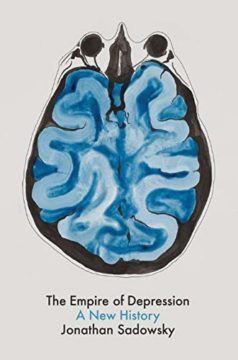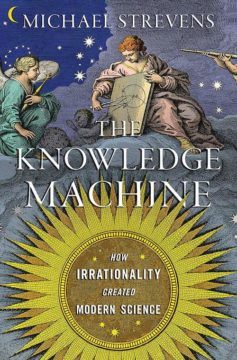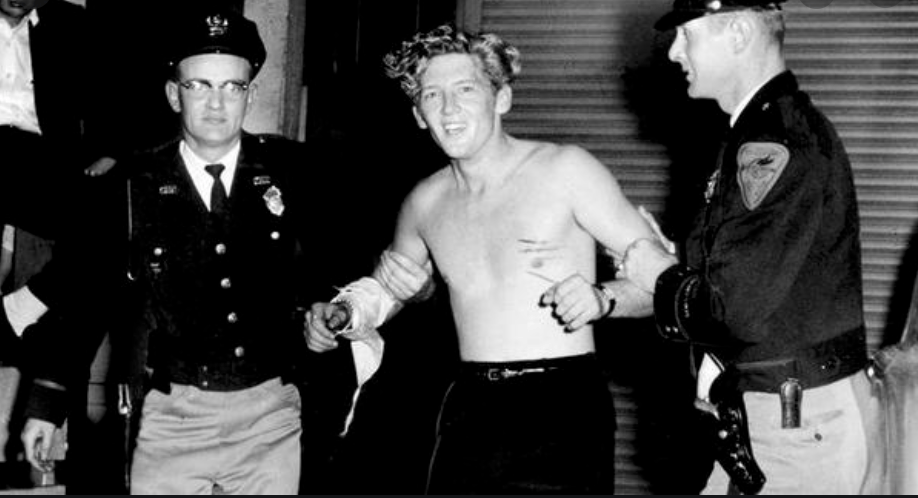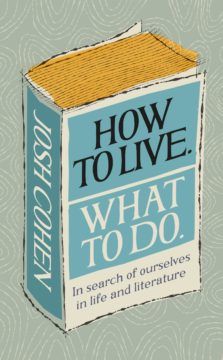Colleen Murphy in Boston Review:
 Transitional justice is both a legal and philosophical theory and a global practice that aims to redress wrongdoing, past and present, in order to vindicate victims, hold perpetrators to account, and transform relationships—among citizens as well as between citizens and public officials. Though it is not as well known in the United States as other paradigms of justice, the framework has been adopted in dozens of countries emerging from periods of war, genocide, dictatorship, and repression, from South Africa to Colombia. As a global practice, the framework began with the recognition that simply moving on hadn’t worked.
Transitional justice is both a legal and philosophical theory and a global practice that aims to redress wrongdoing, past and present, in order to vindicate victims, hold perpetrators to account, and transform relationships—among citizens as well as between citizens and public officials. Though it is not as well known in the United States as other paradigms of justice, the framework has been adopted in dozens of countries emerging from periods of war, genocide, dictatorship, and repression, from South Africa to Colombia. As a global practice, the framework began with the recognition that simply moving on hadn’t worked.
From the vantage of transitional justice, healing of communities can only occur if we first understand what is damaged, and damage can only be repaired if it is truly acknowledged and addressed. And to help to prevent recurrence of atrocity, we need to draw a line between what was accepted in the past and what will be acceptable in the future. The particular measures used to achieve these aims have ranged from truth commissions and criminal investigations and prosecutions to reparations, lustration (vetting government officials for ties to repressive regimes or activity), and other legal and institutional changes.
To illustrate how transitional justice differs from other frameworks of justice, consider restorative justice, which prioritizes the repair of ruptured relationships among victim, offender, and community caused by wrongdoing. Repair occurs via a model of amends—characteristically via apology and reparations—followed by forgiveness.
More here. (Throughout February, at least one post will be dedicated to honoring Black History Month. The theme this year is: The Family)

 This is the familiar arc that Jonathan Sadowsky traces in his new book The Empire of Depression: A New History. But Sadowsky, a medical historian at Case Western, aims to show how the Western notion of depression is making its way around the globe, threatening to displace other conceptions of the disease. “Western psychiatry often treats anxiety and depression as separate things that often occur together. In many places, though, anxiety and depression are seen as part of one thing,” he writes. And the sense of what causes depression differs significantly, too. Whereas in the West, depression is most often understood as having a physical reason, be it genes, or chemistry, “globally, it is more common to consider depression to be at once psychological, social, and physical.”
This is the familiar arc that Jonathan Sadowsky traces in his new book The Empire of Depression: A New History. But Sadowsky, a medical historian at Case Western, aims to show how the Western notion of depression is making its way around the globe, threatening to displace other conceptions of the disease. “Western psychiatry often treats anxiety and depression as separate things that often occur together. In many places, though, anxiety and depression are seen as part of one thing,” he writes. And the sense of what causes depression differs significantly, too. Whereas in the West, depression is most often understood as having a physical reason, be it genes, or chemistry, “globally, it is more common to consider depression to be at once psychological, social, and physical.” “IMAGINE, IF YOU CAN, a small room, hexagonal in shape, like the cell of a bee.” So begins a story by E. M. Forster from over a century ago, about a future that feels uncannily like our present. Called “The Machine Stops,” the story conjures a world of individual humans isolated in such rooms who pass the time by streaming lectures and videoconferencing as the titular Machine tends to their every need. It is a world in which everything — music, food, even your bed — is summoned by the click of a button. In place of work, the Machine offers material and intellectual sustenance. For the story’s main character, Vashti, it turns life into a reassuringly predictable cycle: “[S]he made the room dark and slept; she awoke and made the room light; she ate and exchanged ideas with her friends, and listened to music and attended lectures; she made the room dark and slept. Above her, beneath her, and around her, the Machine hummed eternally.” To Vashti, the Machine offers serenity and certainty in equal measure. In this imagined world of isolated togetherness, heaven is a place.
“IMAGINE, IF YOU CAN, a small room, hexagonal in shape, like the cell of a bee.” So begins a story by E. M. Forster from over a century ago, about a future that feels uncannily like our present. Called “The Machine Stops,” the story conjures a world of individual humans isolated in such rooms who pass the time by streaming lectures and videoconferencing as the titular Machine tends to their every need. It is a world in which everything — music, food, even your bed — is summoned by the click of a button. In place of work, the Machine offers material and intellectual sustenance. For the story’s main character, Vashti, it turns life into a reassuringly predictable cycle: “[S]he made the room dark and slept; she awoke and made the room light; she ate and exchanged ideas with her friends, and listened to music and attended lectures; she made the room dark and slept. Above her, beneath her, and around her, the Machine hummed eternally.” To Vashti, the Machine offers serenity and certainty in equal measure. In this imagined world of isolated togetherness, heaven is a place. The spiritual godfather of the Beat movement, Mr. Ferlinghetti made his home base in the modest independent book haven now formally known as City Lights Booksellers & Publishers. A self-described “literary meeting place” founded in 1953 and located on the border of the city’s sometimes swank, sometimes seedy North Beach neighborhood, City Lights, on Columbus Avenue, soon became as much a part of the San Francisco scene as the Golden Gate Bridge or Fisherman’s Wharf. (The city’s board of supervisors designated it a historic landmark in 2001.)
The spiritual godfather of the Beat movement, Mr. Ferlinghetti made his home base in the modest independent book haven now formally known as City Lights Booksellers & Publishers. A self-described “literary meeting place” founded in 1953 and located on the border of the city’s sometimes swank, sometimes seedy North Beach neighborhood, City Lights, on Columbus Avenue, soon became as much a part of the San Francisco scene as the Golden Gate Bridge or Fisherman’s Wharf. (The city’s board of supervisors designated it a historic landmark in 2001.) Several years ago, workers breaking ground for a power plant in New Zealand
Several years ago, workers breaking ground for a power plant in New Zealand  The rise of China to the status of economic superpower has been the dominant narrative of the last three decades. China’s rise as the main feature of globalisation, in conjunction with a beneficial sweet spot in demography, drove output up and inflation down in the advanced economies. But these trends are now reversing. China’s economic success depended on many factors, a strong historical social and cultural background, political single-mindedness, a flexible and competent labour force, fed by internal migration, capital controls, developing satisfactory infrastructure and absorption of Western technological know-how. But China’s greatest contribution to global growth is now past. Its working age population is now shrinking, while the ranks of the old expands.
The rise of China to the status of economic superpower has been the dominant narrative of the last three decades. China’s rise as the main feature of globalisation, in conjunction with a beneficial sweet spot in demography, drove output up and inflation down in the advanced economies. But these trends are now reversing. China’s economic success depended on many factors, a strong historical social and cultural background, political single-mindedness, a flexible and competent labour force, fed by internal migration, capital controls, developing satisfactory infrastructure and absorption of Western technological know-how. But China’s greatest contribution to global growth is now past. Its working age population is now shrinking, while the ranks of the old expands. Dreams are full of possibilities; by drifting into the world beyond our waking realities, we can visit magical lands, travel through time and interact with long-lost family and friends. The notion of communicating in real time with someone outside of our dreamscapes, however, sounds like science fiction. A new study demonstrates that, to some extent, this seeming fantasy can be made real. Scientists already knew that one-way contact is attainable. Previous studies have demonstrated that people can process external cues, such as sounds and smells, while asleep. There is also evidence that people are able to send messages in the other direction: Lucid dreamers—those who can become aware they are in a dream—can be trained to signal, using eye movements, that they are in the midst of a dream. Two-way communication, however, is more complex. It requires a person who is asleep to actually understand what they hear from the outside and think about it logically enough to generate an answer, explains Ken Paller, a cognitive neuroscientist at Northwestern University. “We believed that it was going to be possible—but until we actually demonstrated it, we weren’t sure.”
Dreams are full of possibilities; by drifting into the world beyond our waking realities, we can visit magical lands, travel through time and interact with long-lost family and friends. The notion of communicating in real time with someone outside of our dreamscapes, however, sounds like science fiction. A new study demonstrates that, to some extent, this seeming fantasy can be made real. Scientists already knew that one-way contact is attainable. Previous studies have demonstrated that people can process external cues, such as sounds and smells, while asleep. There is also evidence that people are able to send messages in the other direction: Lucid dreamers—those who can become aware they are in a dream—can be trained to signal, using eye movements, that they are in the midst of a dream. Two-way communication, however, is more complex. It requires a person who is asleep to actually understand what they hear from the outside and think about it logically enough to generate an answer, explains Ken Paller, a cognitive neuroscientist at Northwestern University. “We believed that it was going to be possible—but until we actually demonstrated it, we weren’t sure.” Hinton Rowan Helper was an unreserved bigot from North Carolina who wrote hateful, racist tracts during Reconstruction. He was also, in the years leading up to the Civil War, a determined abolitionist.
Hinton Rowan Helper was an unreserved bigot from North Carolina who wrote hateful, racist tracts during Reconstruction. He was also, in the years leading up to the Civil War, a determined abolitionist. Study, reader, before going further,
Study, reader, before going further,  In our postmodern world, studying the classics of ancient Greece and Rome can seem quaint at best, downright repressive at worst. (We are talking about works by dead white men, after all.) Do we still have things to learn from classical philosophy, drama, and poetry? Shadi Bartsch offers a vigorous affirmative to this question in two new books coming from different directions. First, she has newly translated the
In our postmodern world, studying the classics of ancient Greece and Rome can seem quaint at best, downright repressive at worst. (We are talking about works by dead white men, after all.) Do we still have things to learn from classical philosophy, drama, and poetry? Shadi Bartsch offers a vigorous affirmative to this question in two new books coming from different directions. First, she has newly translated the  Joseph Silverman remembers when he began connecting the dots that would ultimately lead to a new branch of mathematics: April 25, 1992, at a conference at Union College in Schenectady, New York.
Joseph Silverman remembers when he began connecting the dots that would ultimately lead to a new branch of mathematics: April 25, 1992, at a conference at Union College in Schenectady, New York. In 2015, Bon Appétit
In 2015, Bon Appétit  Much of Cohen’s work is driven by his aversion to a type of spatial metaphor that minimises the value and variety of familiar experience. His first book, Spectacular Allegories (1998), a study of modern American fiction and journalism that emerged from his PhD, questions the postmodern idea that spectacle somehow floats “outside” history and “above” material reality. It was written before Cohen was a practitioner, or even employed Freudian theory. He told me that his “obsessional preoccupation – and I’m pointedly using the singular – has been what is concealed in what is right in front of us, in what is present”. He isn’t only talking about unconscious blind-spots. The book’s title is “filched”, as he puts it, from the American poet Wallace Stevens, and Cohen expressed a particular fondness for Stevens’s idea of a “strange presence that irradiates through the world that his poems are always gesturing towards and trying to get us to see”.
Much of Cohen’s work is driven by his aversion to a type of spatial metaphor that minimises the value and variety of familiar experience. His first book, Spectacular Allegories (1998), a study of modern American fiction and journalism that emerged from his PhD, questions the postmodern idea that spectacle somehow floats “outside” history and “above” material reality. It was written before Cohen was a practitioner, or even employed Freudian theory. He told me that his “obsessional preoccupation – and I’m pointedly using the singular – has been what is concealed in what is right in front of us, in what is present”. He isn’t only talking about unconscious blind-spots. The book’s title is “filched”, as he puts it, from the American poet Wallace Stevens, and Cohen expressed a particular fondness for Stevens’s idea of a “strange presence that irradiates through the world that his poems are always gesturing towards and trying to get us to see”. We knew that the persistent cough spelled his end. The fever had preceded it, just as it had in his mother, brother and dozens around him. The contagion that was devastating society had him in its throes. When he finally died, a postmortem showed his lungs had been decimated. He’d suffocated, drowning in his own inflammatory fluids. The young English poet
We knew that the persistent cough spelled his end. The fever had preceded it, just as it had in his mother, brother and dozens around him. The contagion that was devastating society had him in its throes. When he finally died, a postmortem showed his lungs had been decimated. He’d suffocated, drowning in his own inflammatory fluids. The young English poet